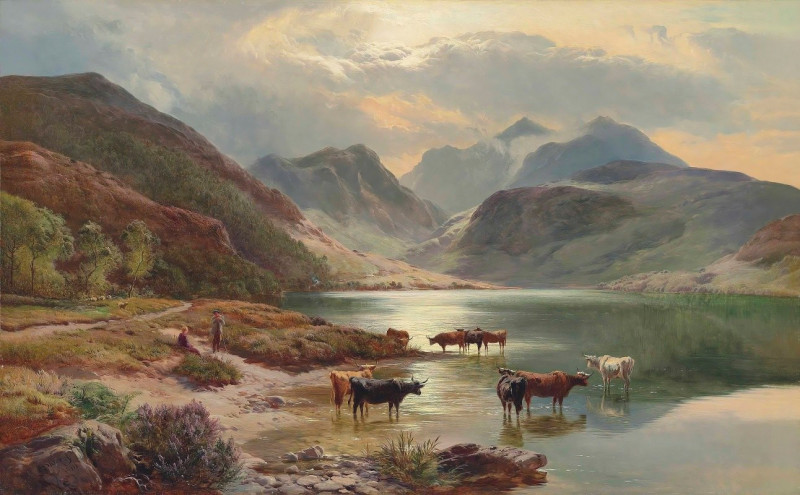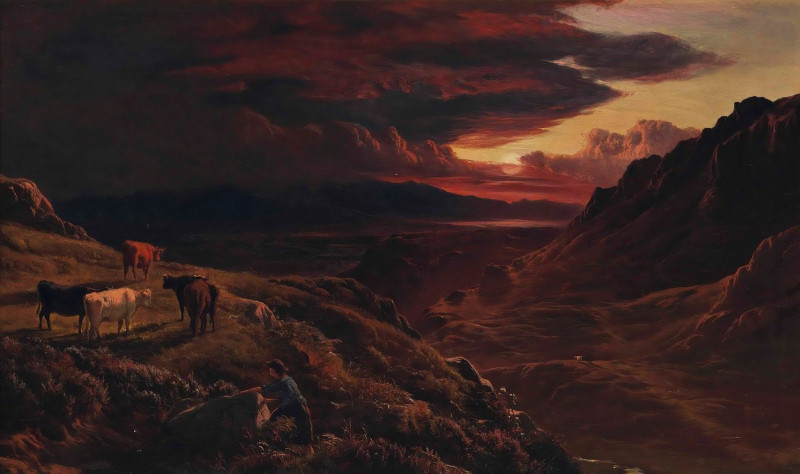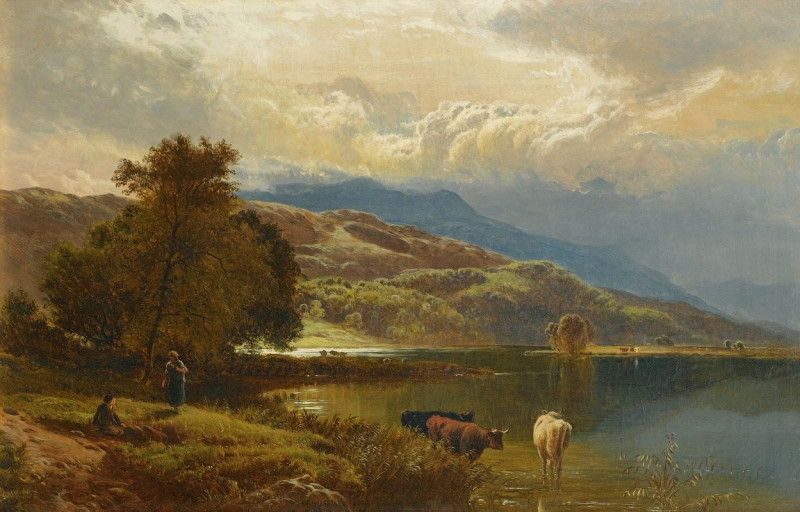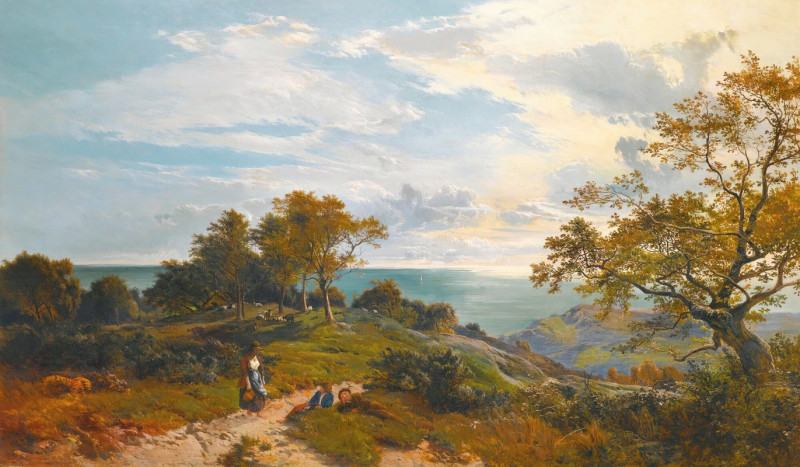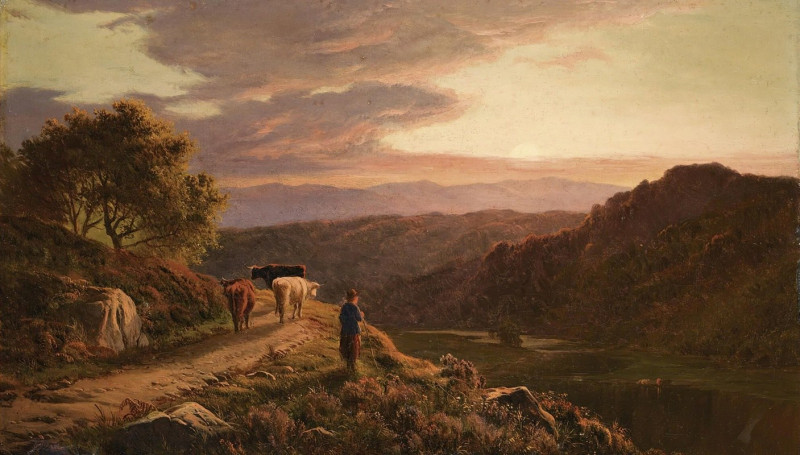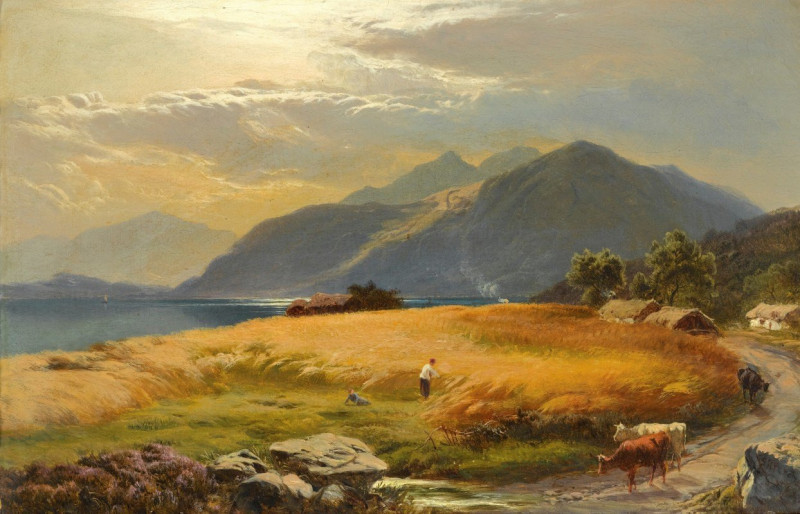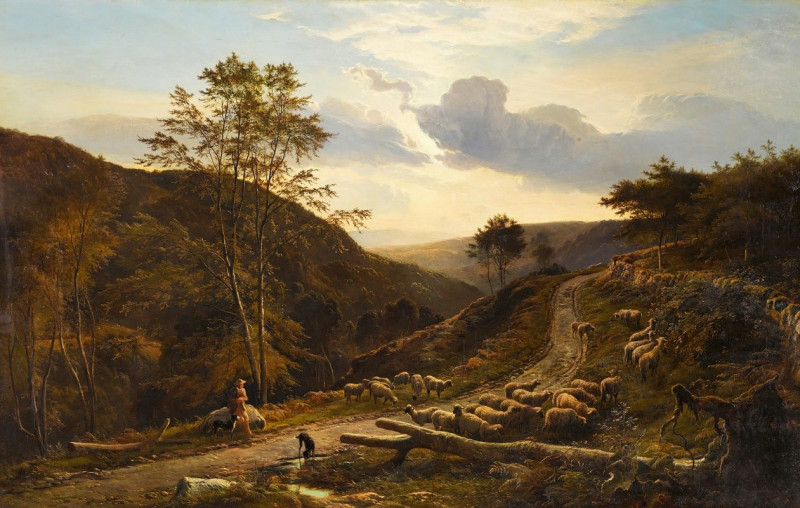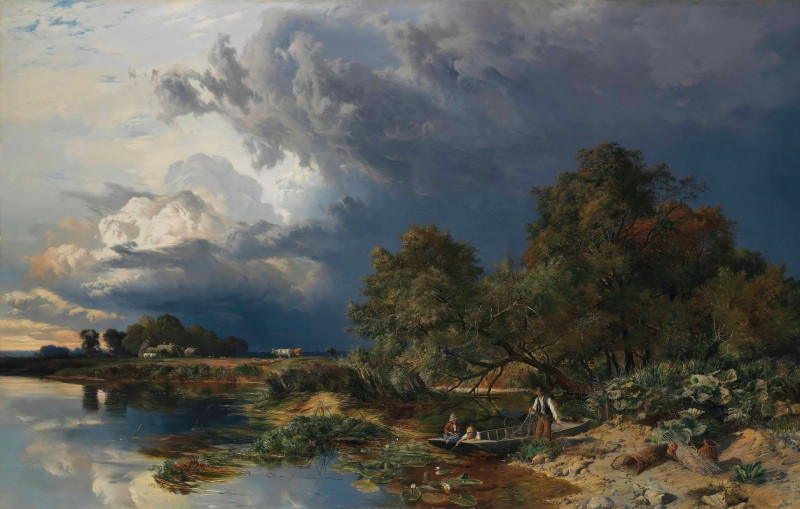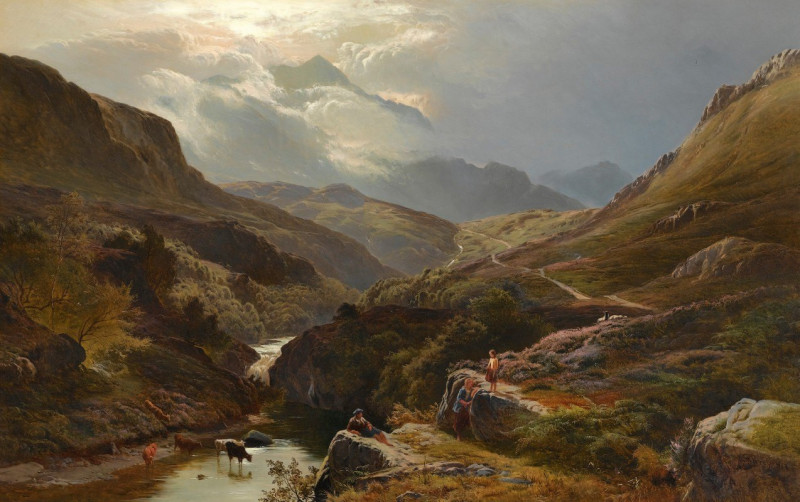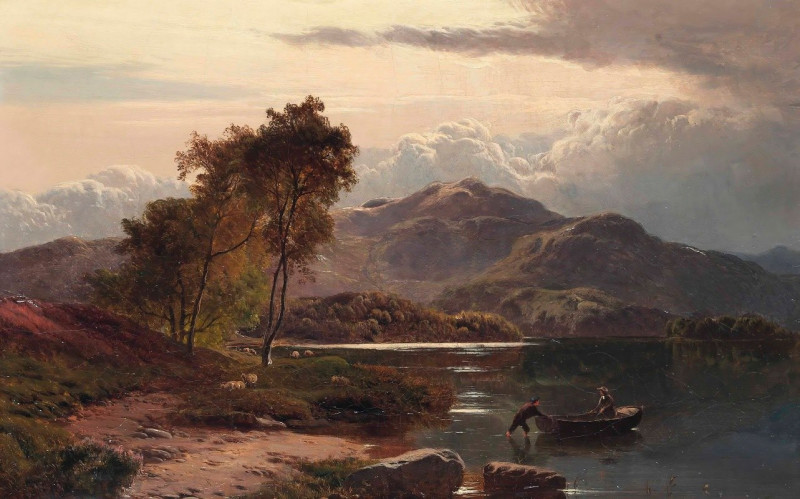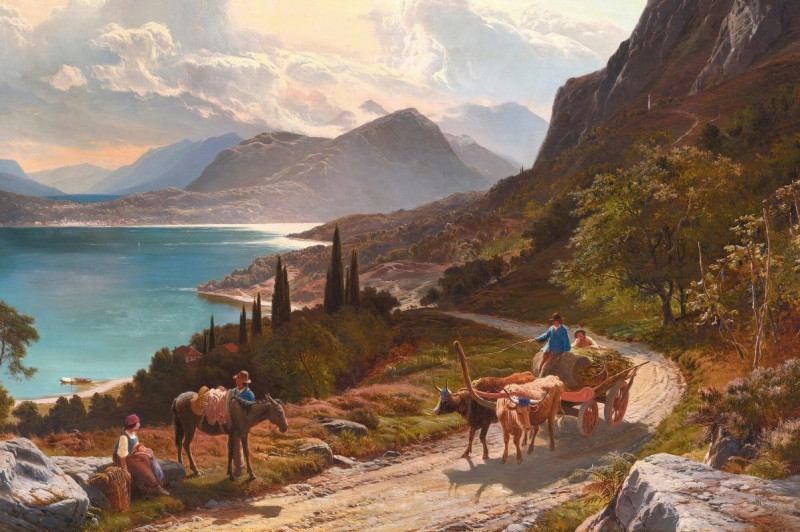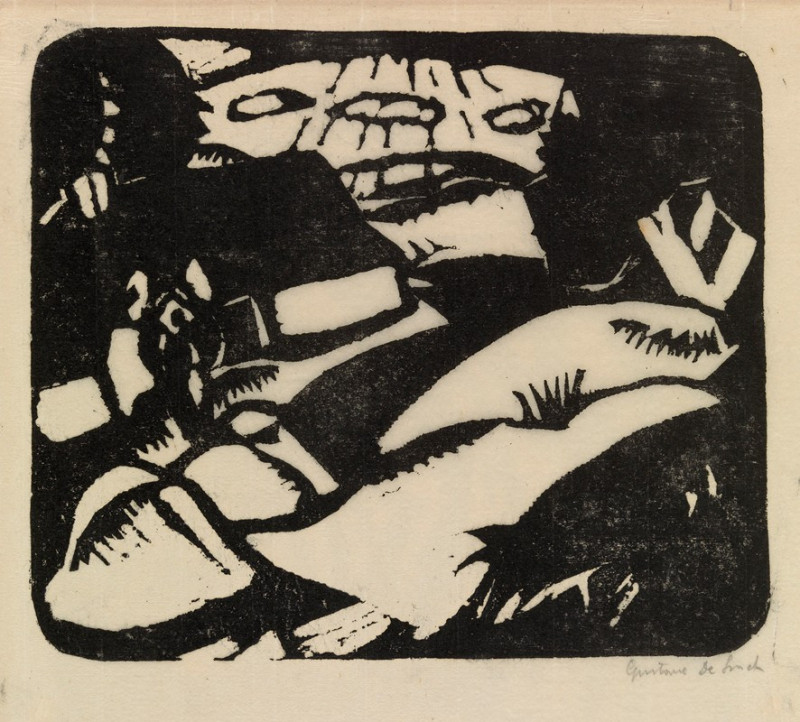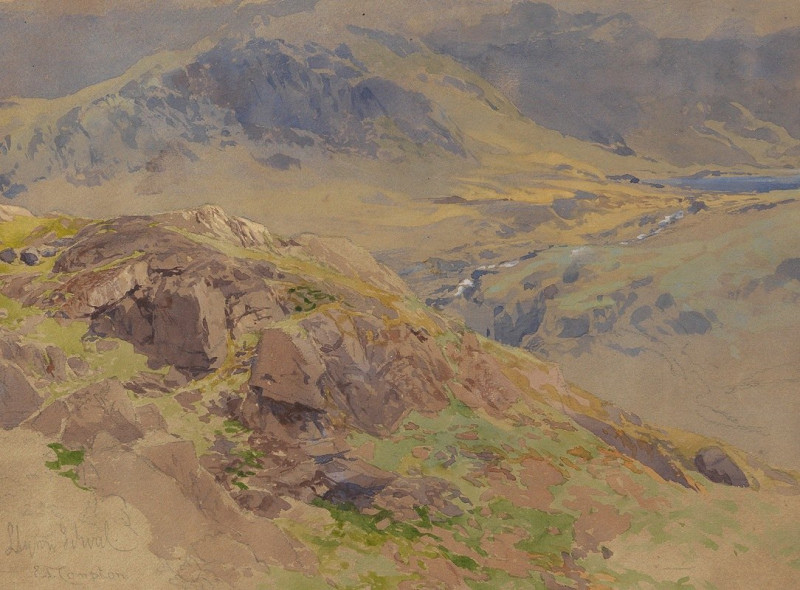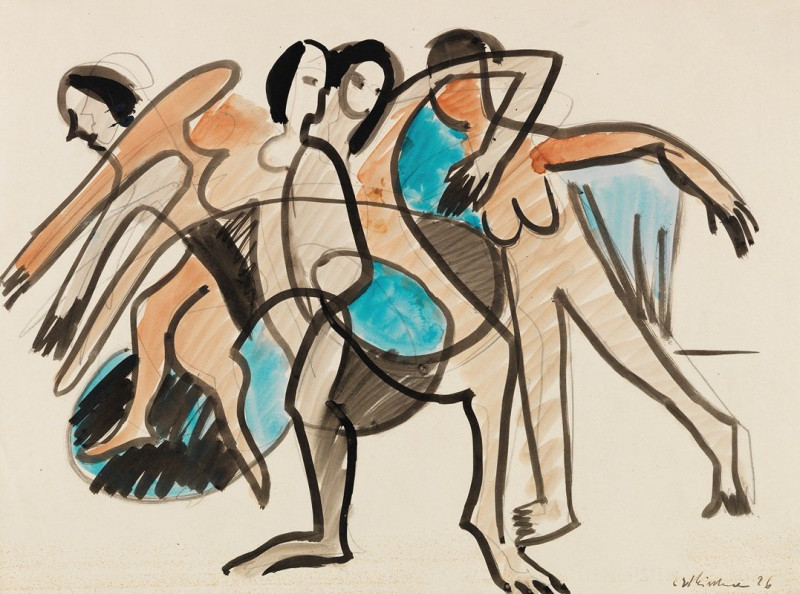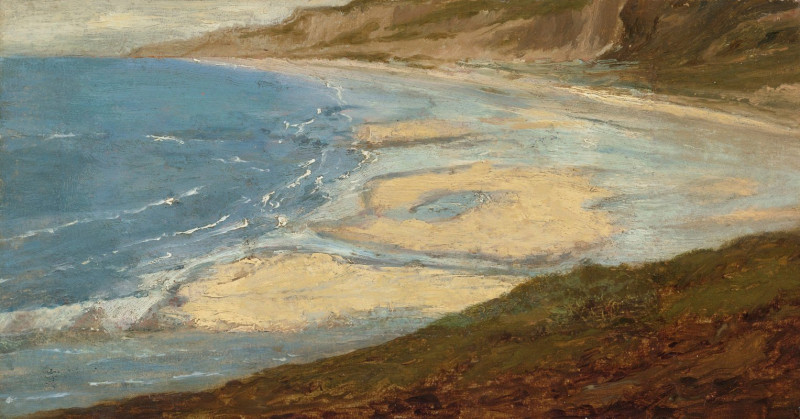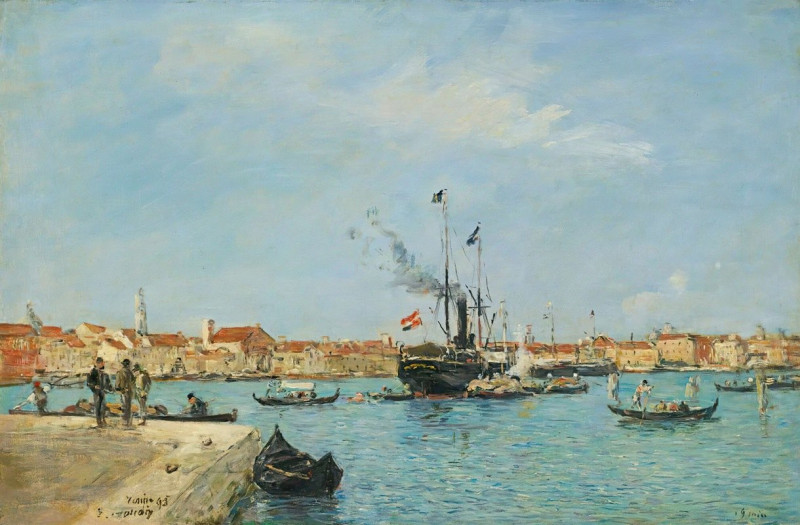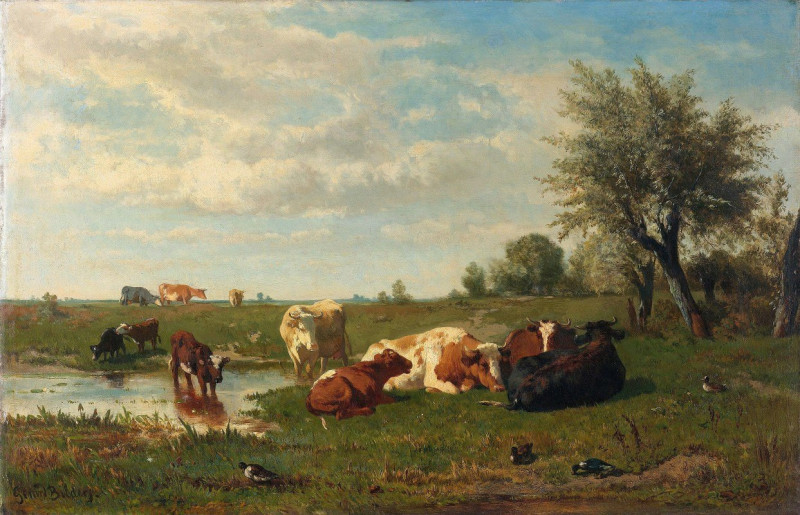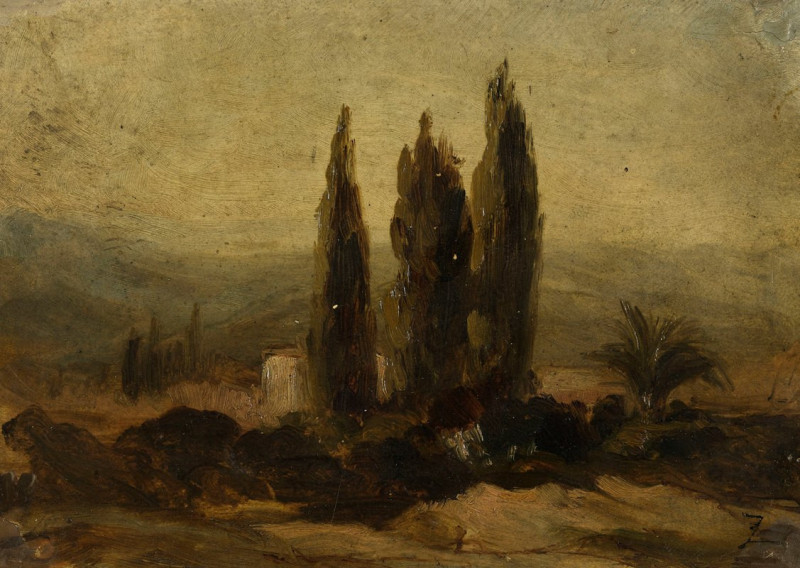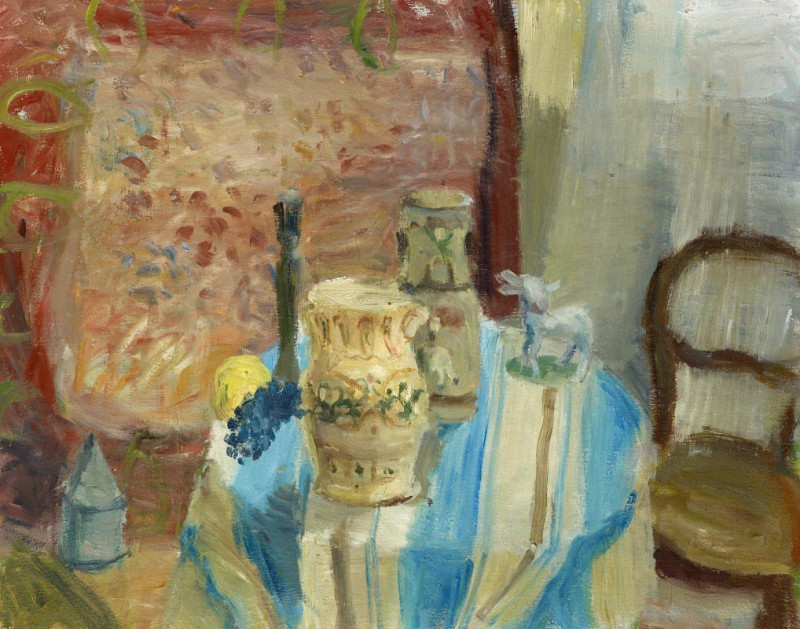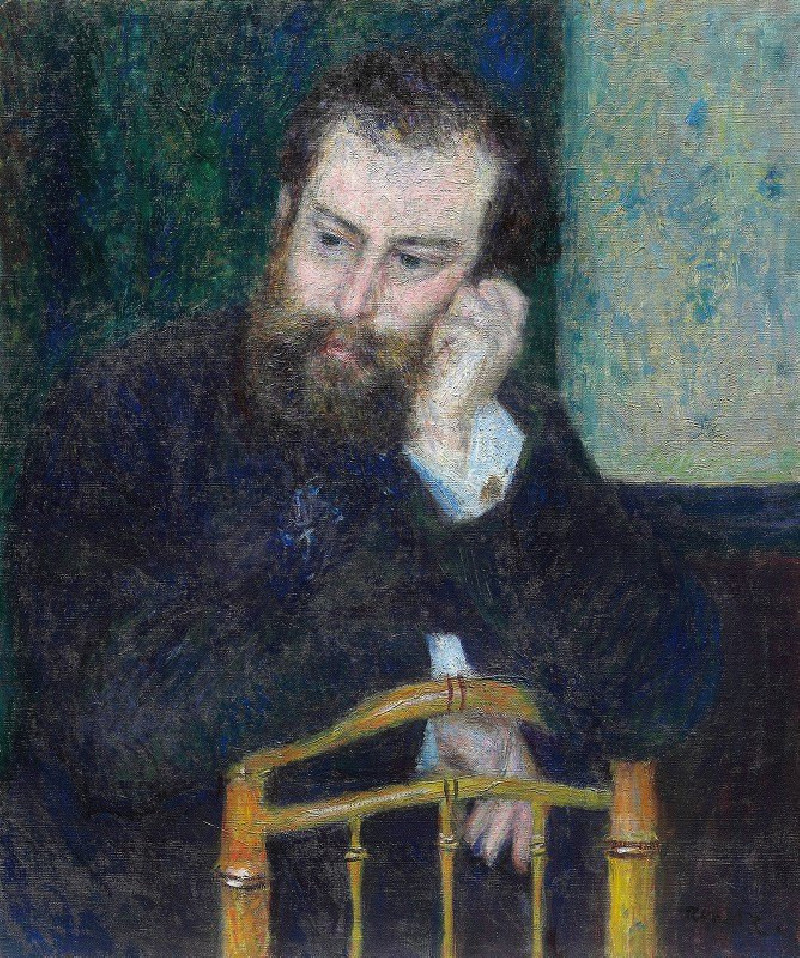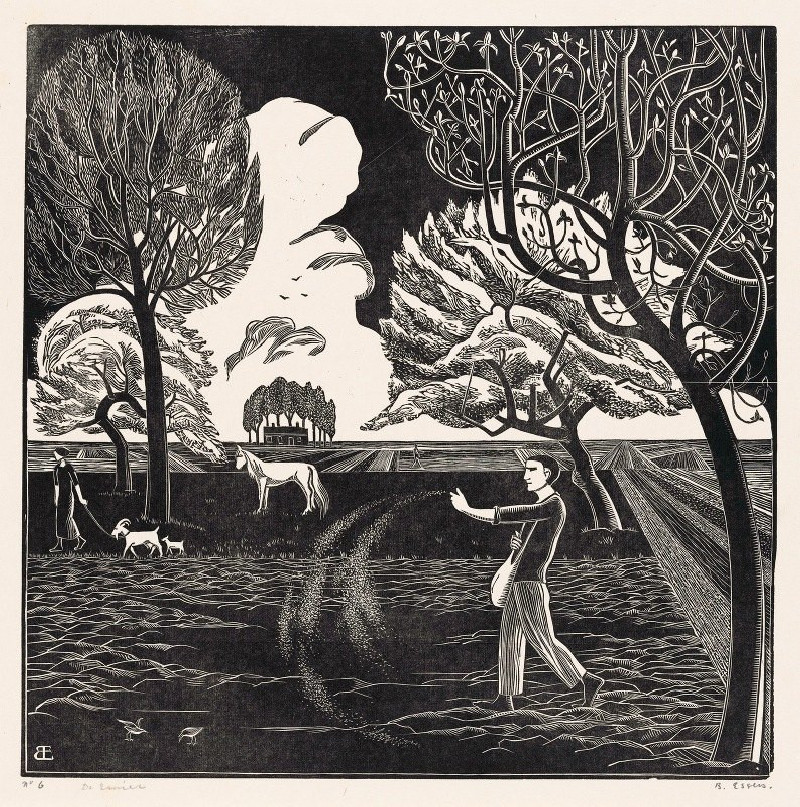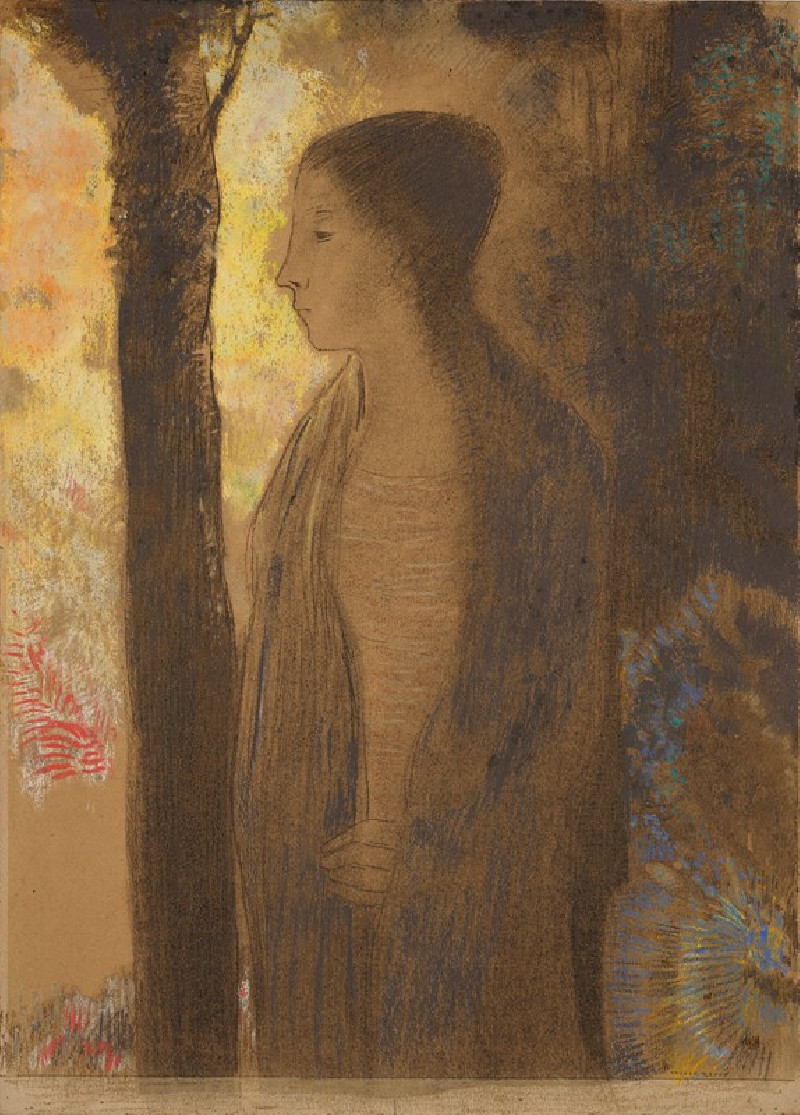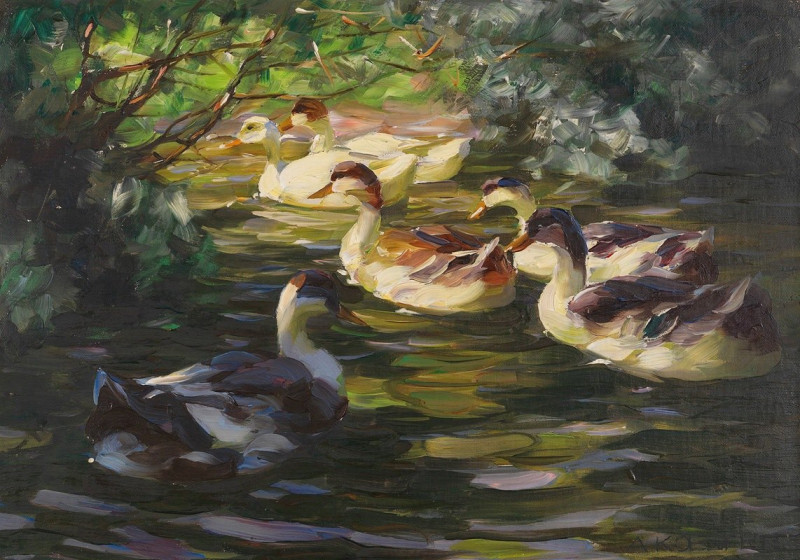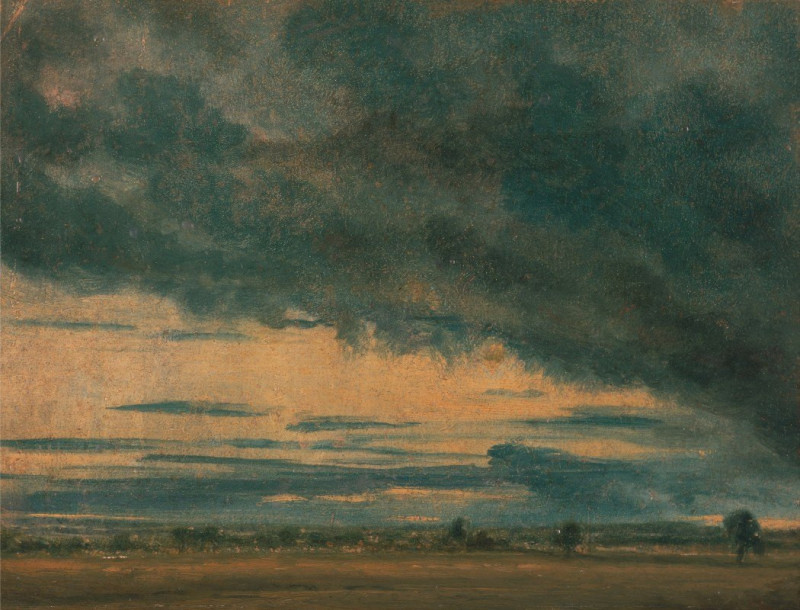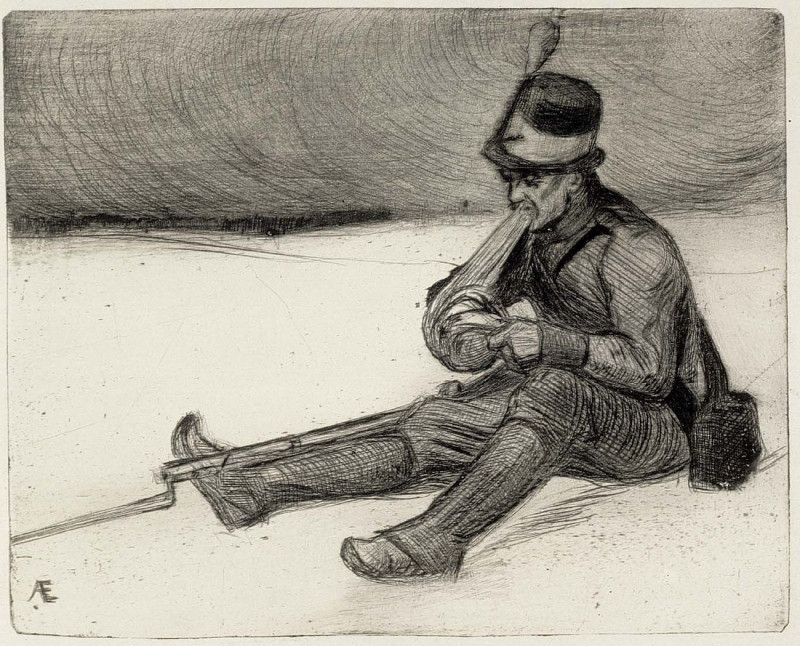Glencoe From Loch Leven, Scotland (1874)
Technique: Giclée quality print
Recommended by our customers
More about this artwork
This stunning landscape painting by Sidney Richard Percy, titled "Glencoe from Loch Leven, Scotland," captures the tranquil beauty and timeless aura of the Scottish Highlands. Created in 1874, Percy's work masterfully portrays the serene atmosphere of Loch Leven, flanked by the rugged grandeur of the Glencoe mountains.In the foreground, a pastoral scene unfolds as cattle leisurely wade and drink from the glassy waters, adding a dynamic and somewhat pastoral element to the composition. The lake reflects the soft, glowing light of the sky, which Percy has rendered in gentle hues of blue and gold, suggesting the calm of either early morning or late afternoon.Off to the left, a lone figure accompanied by a child hints at human presence without disturbing the predominately natural vista. They seem engaged in a quiet walk, enjoying the expansive views and perhaps tending to the cattle.The brushwork skillfully details the textures of the scene—from the lush greenery bordering the lake to the rugged, weather-beaten faces of the surrounding hills. Percy's attention to light and shadow, combined with a profound sense of place, invites viewers to step into a world both majestic and serene.This artwork not only reflects Sidney Richard Percy's adeptness in landscape painting but also evokes a deep appreciation for the wild, untouched landscapes of Scotland. "Glencoe from Loch Leven" is a testament to the beauty of the natural world and a striking example of 19th-century landscape art.
Delivery
Returns
Sidney Richard Percy was an English landscape painter during the Victorian era, and a member of the Williams family of painters.
Sidney Richard Percy was born Sidney Richard Percy Williams on 22 March 1822 in London. He was the fifth son of the painter Edward Williams (1781–1855) and Ann Hildebrandt (c.1780-1851), and a member of the Williams family of painters, who were related to such famous artists as James Ward, R.A. and George Morland.

